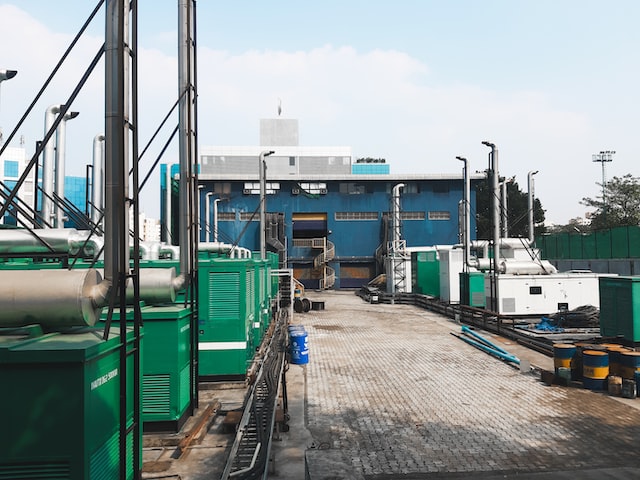Power outages are unpredictable. They usually start unexpectedly and can last from a few hours to a week or even more. If you live in a private house, you can secure yourself with a generator. They are widely used on building sites and campings, yet these tools also allow you to run all the important applications and keep the usual comfort level. These machines are divided by a number of features like power source, runtime, or set of outlets. Having read this article, you will learn specific features of electric generators, how to use and maintain them, and safety rules.
Table of Contents
When Do I Need a Generator?
A generator is a multipurpose tool that can hedge you in a variety of cases, from ordinary blackouts to natural disasters. For example, a 12,000-watt generator can provide enough power to keep working all the usual devices for a long period of time. There are several particular reasons why people prefer to power their houses autonomously.
- The first and the most loss-making issue a blackout cause concerns food storage. Even if you avoid opening the fridge to keep it cold as long as possible, many products will get spoiled, hurting your budget if you prefer stockpiling.
- With the money you spend on products, you lose the money you can earn if you work from home. Power outage is unpredictable, and you rarely know when it will start and how long it will last, interrupting working routine and plans.
- A generator is a crucial part of any house if owners keep medical devices that need a constant power supply.
- In addition, for those who use their garage not only for keeping a car but also use it as a workshop, a generator allows using a wider range of tools. Lightweight models can facilitate outdoor jobs in large yards.
Electric Generators’ Features
The power source defines the rest of the properties, like wattage or noise level. It also affects maintenance and price. There are 4 types of generators, according to the type of fuel they require.
- The choice of gasoline generators is the widest since this type is the oldest. This category provides various models that differ by wattage, weight, and additional functions. Due to the wide choice, they tend to be more affordable. However, due to the specific construction, gasoline engines require more maintenance than other types.
- Diesel generators are more expensive than gasoline ones but are more fuel-efficient. Thus, the price you pay once for a generator might be less important than the price for fuel and maintenance. They also tend to be lighter and more portable. Diesel generators require less maintenance since they have no spark ignition, making them safer.
- Generators, run by natural gas, have a great advantage over the rest of the types since they can be connected to a gas line and provide an uninterrupted power supply. However, their main flaw is no less significant, and this type is more explosive.
- Propane is cheaper than gasoline, but it burns faster than any other type of fuel. Their maintenance is simple, and they are also easy to start, which is crucial in emergency cases. On the other hand, propane is less available than gasoline or diesel.
How to use and maintain an electric generator
Fuel type also defines how you use and maintain a generator. The only rule applied to any type is reading the manual. Here is a brief description of the process so you can get a general image of generators’ differences.
- To start a gasoline or diesel generator, fill the tank with fuel. Then find a generator’s oil fill cap and add oil. Inspect an air filter and replace it if it is dirty or clogged. Check if the circuit breaker is flipped off, turn on the fuel valve, and turn on the generator. When you run out of fuel, turn off a generator and wait until it gets cold. Fuel is flammable; if you accidentally spill it on a hot surface, you can start a fire and be injured.
- Natural gas generators are connected to the municipality’s existing natural gas pipeline. Since you deal with common property, there is little you can do by yourself. The best option is to hire a licensed plumbing company.
- The construction of propane generators differs from other types since there is no tank to fill in fuel. Propane is stored separately in the tanks and connected to the generator when needed.
Safety Is First
Regardless of the generator type, most safety rules are universal. The main rule is that these machines can be used only outdoors. Therefore, they are purchased only for private houses. The reason is the harmful fuel fumes. So breathing them can lead to serious poisoning or death. Here are no less important tips to avoid injuries and extend the generator’s lifetime.
- Keep the moist away. Select a dry room to store the generator, never use it under the rain, and never put it on wet surfaces. As with any electric application, never touch it with wet hands.
- Never store a generator with gasoline or diesel inside. Drain the fuel if you don’t plan to use the machine for more than a month since these liquids don’t age well. Storing a generator with a full tank harms the engine and leads to malfunctions and clogging.
- Oil is responsible for the engine lubrication, ensuring its proper work. Select a suitable type of oil and always follow its level. Oil also needs to be drained before you hide a generator away.
Wide Choice, Same Rules
Generators vary by a number of characteristics, but the type of fuel they consume is the most important. Gasoline, diesel, natural gas, and propane define how to start, use and maintain a generator. Each type has advantages and drawbacks, suiting different goals and budgets. However, safety rules are universal and can be regardless of the fuel type.

